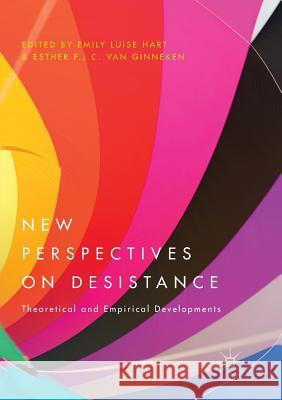New Perspectives on Desistance: Theoretical and Empirical Developments » książka
topmenu
New Perspectives on Desistance: Theoretical and Empirical Developments
ISBN-13: 9781349957545 / Angielski / Miękka / 2018 / 301 str.
Kategorie:
Kategorie BISAC:
Wydawca:
Palgrave MacMillan
Język:
Angielski
ISBN-13:
9781349957545
Rok wydania:
2018
Wydanie:
Softcover Repri
Ilość stron:
301
Waga:
0.37 kg
Wymiary:
21.01 x 14.81 x 1.68
Oprawa:
Miękka
Wolumenów:
01
Dodatkowe informacje:
Wydanie ilustrowane











